The NFL playoffs represent the pinnacle of competitive American football, where elite teams and players vie for the ultimate prize: the Super Bowl. These high-stakes games have served as the stage for some of the most memorable moments in sports history. From miraculous comebacks to legendary displays of skill, the playoff performances listed below are emblematic of greatness under immense pressure.
These are the games that transcended mere wins and losses to become indelible chapters in NFL lore. Whether they featured record-setting individual efforts, incredible leadership, or unyielding tenacity, these performances showcased the remarkable willpower and determination of the athletes who participated. Their heroics not only delivered victories but also reshaped how we think about football and competition.
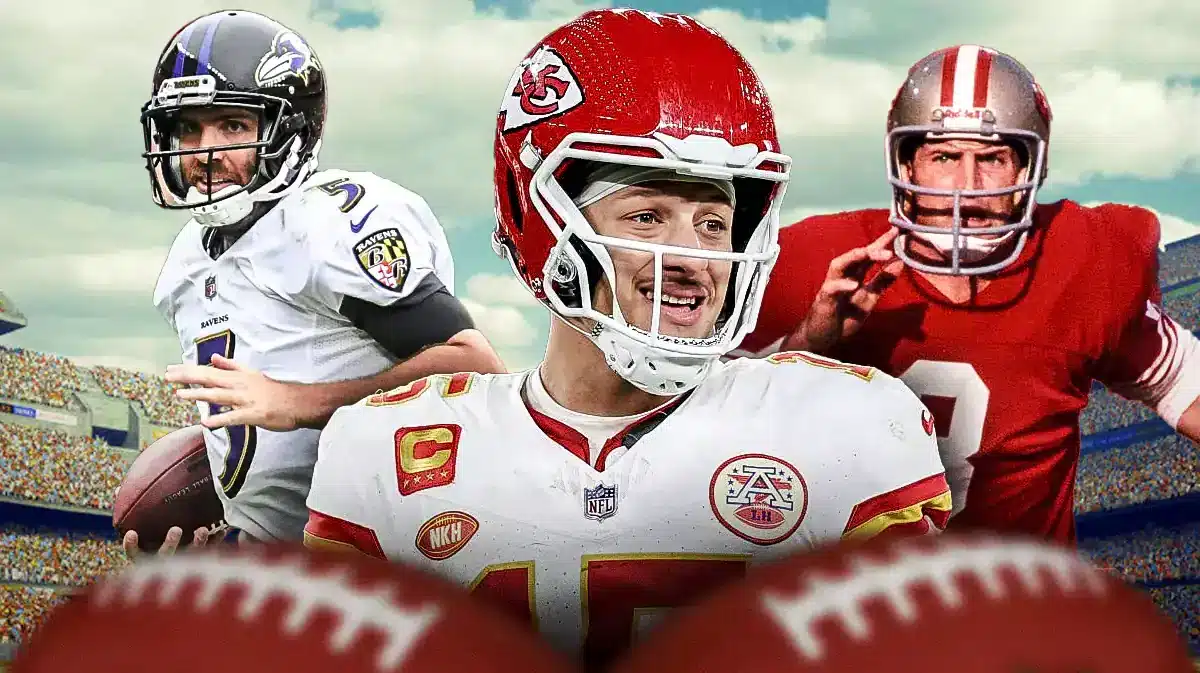
This list comprises the top 10 performances that defined the pinnacle of the NFL playoffs. Each performance exemplified something unique about the players and their teams, whether it was resilience in the face of adversity or the ability to rise above expectations when everything was on the line. These moments became defining instances in careers, cementing legacies and leaving an indelible mark on the sport itself. From quarterbacks leading improbable comebacks to receivers and running backs dominating defenses, the following stories embody excellence.
1. Jerry Rice – Super Bowl XXIII
Jerry Rice’s performance in Super Bowl XXIII was nothing short of legendary. Entering the contest against the Cincinnati Bengals, the San Francisco 49ers were favored but found themselves in a defensive struggle. Rice, known for his precision route-running and ability to create separation, was the linchpin of the 49ers’ offensive attack.

Throughout the game, Rice dominated the Bengals’ defensive backs with an astonishing 11 receptions for 215 yards and a touchdown. Every catch seemed to come at a crucial moment, keeping the 49ers’ drives alive. His knack for gaining extra yards after each reception consistently put San Francisco in scoring range. One of his key plays came in the third quarter when he caught a 14-yard pass from Joe Montana to set up a touchdown, which shifted the momentum in the 49ers’ favor.
Rice’s ability to consistently find open space and gain crucial yards proved invaluable in the final drive of the game. With the 49ers trailing 16-13 and time running out, Joe Montana orchestrated a masterful 92-yard drive. Rice contributed heavily to the drive, making catches that brought the 49ers closer to the end zone. His consistent play opened up opportunities for his teammates and helped Montana find John Taylor for the game-winning touchdown. The drive was a testament to Rice’s influence, as he continually created problems for the Bengals’ defense.
Rice’s 215 receiving yards set a Super Bowl record at the time, a performance that earned him the Super Bowl MVP award. He was a critical part of the 49ers’ offensive strategy, repeatedly beating double coverage with precise routes and athletic catches. Rice’s play was the embodiment of excellence under pressure, helping to cement his legacy as one of the greatest wide receivers of all time.
In the aftermath of Super Bowl XXIII, Rice’s performance was hailed by analysts, coaches, and players as one of the best in Super Bowl history. His ability to step up in such a high-stakes game is one of the reasons he’s widely considered the best receiver ever to play the game. His impact went beyond just statistics; his leadership and confidence inspired his teammates, ensuring that the 49ers remained calm under pressure.
Super Bowl XXIII also marked a turning point in the 49ers dynasty, solidifying their reputation as one of the premier teams of the 1980s. Rice’s heroics exemplified the resilience and talent of the team, which went on to win another Super Bowl the following season.
Overall, Jerry Rice’s performance remains iconic, a benchmark against which all other Super Bowl-receiving performances are measured. It was a showcase of his unparalleled skill and determination, embodying what it means to be a champion.
2. Tom Brady – Super Bowl LI
In Super Bowl LI, Tom Brady orchestrated a masterpiece for the New England Patriots in a contest that has gone down as one of the greatest comebacks in NFL history. Facing the Atlanta Falcons, the Patriots found themselves in dire straits early, trailing 28-3 midway through the third quarter. This deficit was formidable, with most fans believing the game was over. However, Brady maintained his composure and went on to lead the Patriots to an improbable victory.
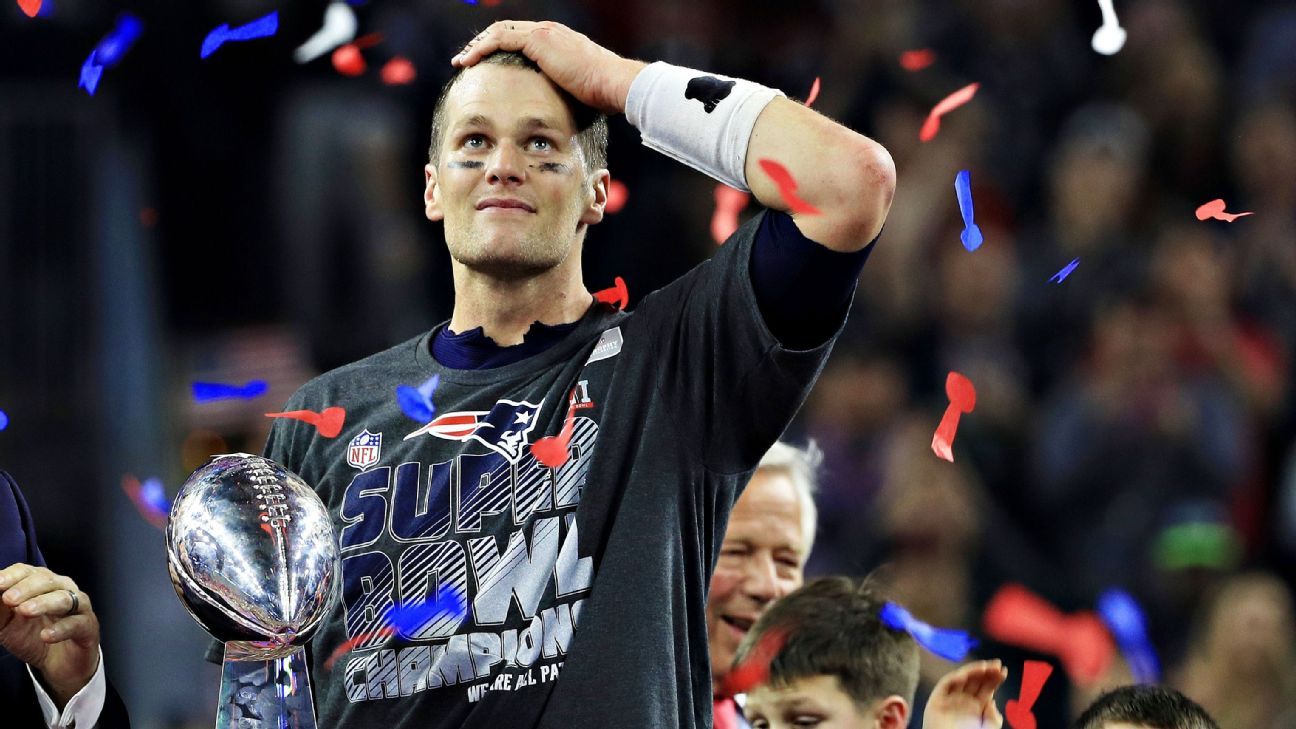
Despite relentless pressure from Atlanta’s defense, Brady executed a quick-tempo offense, allowing him to exploit gaps in the Falcons’ secondary. He found his rhythm with Julian Edelman, Danny Amendola, and James White, steadily chipping away at the deficit. James White became particularly pivotal, catching 14 passes out of the backfield for 110 yards and a touchdown. Edelman’s miraculous juggling catch in the fourth quarter gave the Patriots the momentum they needed to push further.
Brady threw two crucial touchdown passes to Amendola and White to tie the game at 28-28, forcing the first overtime in Super Bowl history. In overtime, the Patriots won the coin toss, and Brady meticulously led them down the field on an eight-play, 75-yard drive, capped by White’s game-winning touchdown run.
Brady finished the game with 466 passing yards and two touchdowns. His performance earned him his fourth Super Bowl MVP award. This historic comeback victory cemented Brady’s legacy as one of the greatest quarterbacks ever, showcasing his resilience, precision, and ability to perform under pressure.
3. Joe Montana – Super Bowl XXIV
Joe Montana’s performance in Super Bowl XXIV was an exhibition of efficiency and excellence. The San Francisco 49ers faced the Denver Broncos, who had a formidable defense and one of the league’s best quarterbacks in John Elway. However, the game turned out to be a complete mismatch, as Montana led the 49ers to a decisive 55-10 victory.
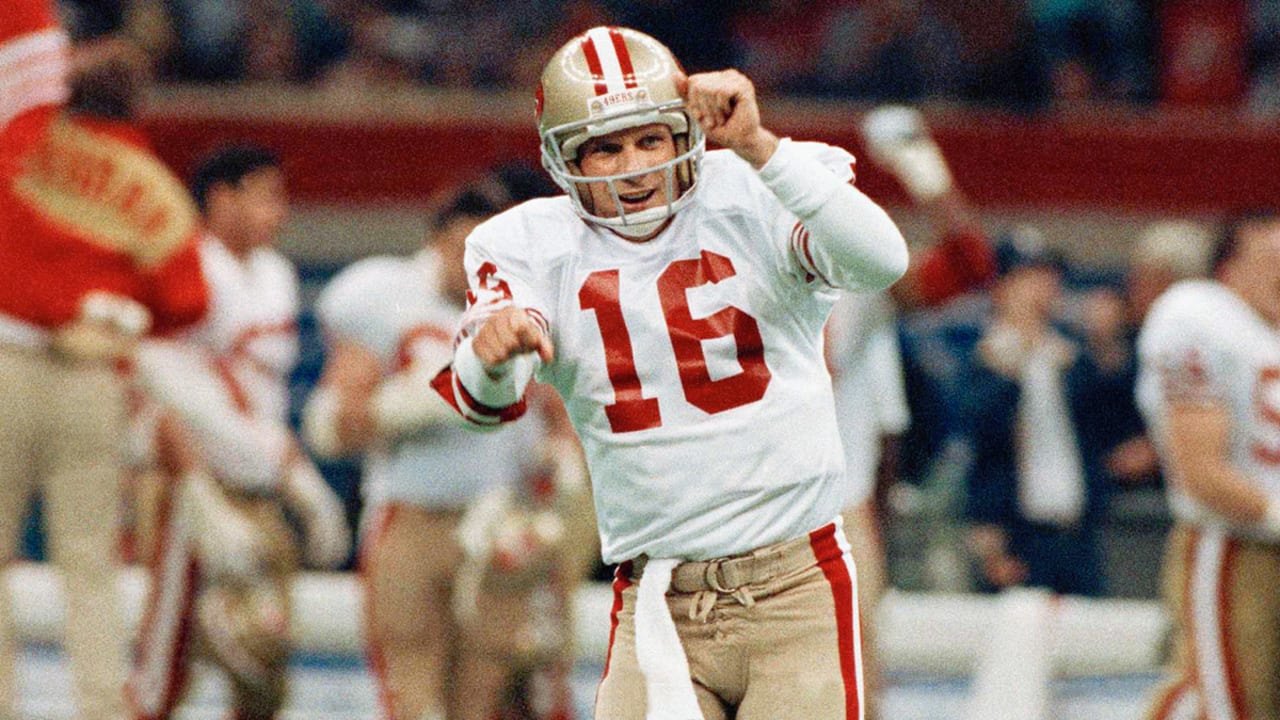
Montana’s command over the offense was evident from the first snap. He threw for 297 yards and five touchdowns while completing 22 of 29 passes. His perfect passer rating of 147.6 highlighted his surgical precision in dissecting Denver’s secondary. He utilized the array of offensive weapons at his disposal, spreading the ball to Jerry Rice, John Taylor, and tight end Brent Jones.
Jerry Rice, Montana’s favorite target, caught seven passes for 148 yards and three touchdowns. His ability to create separation and find holes in Denver’s coverage was critical to the 49ers’ offensive explosion. Montana also connected with Taylor and Tom Rathman, allowing the 49ers to build an insurmountable lead by halftime.
Montana’s five-touchdown performance earned him the Super Bowl MVP award, and the victory sealed the 49ers’ fourth Super Bowl title. His consistent poise, accuracy, and leadership throughout the game cemented his legacy as one of the greatest quarterbacks ever. Super Bowl XXIV was the culmination of the 49ers’ dynasty, solidifying their place among the best teams in NFL history.
4. Steve Young – Super Bowl XXIX
Steve Young solidified his legacy as one of the NFL’s elite quarterbacks in Super Bowl XXIX. After years of playing in the shadow of Joe Montana, Young had finally earned his chance to lead the San Francisco 49ers to glory. Facing the San Diego Chargers, Young threw for 325 yards and six touchdowns, breaking Montana’s record for most touchdowns in a Super Bowl game.
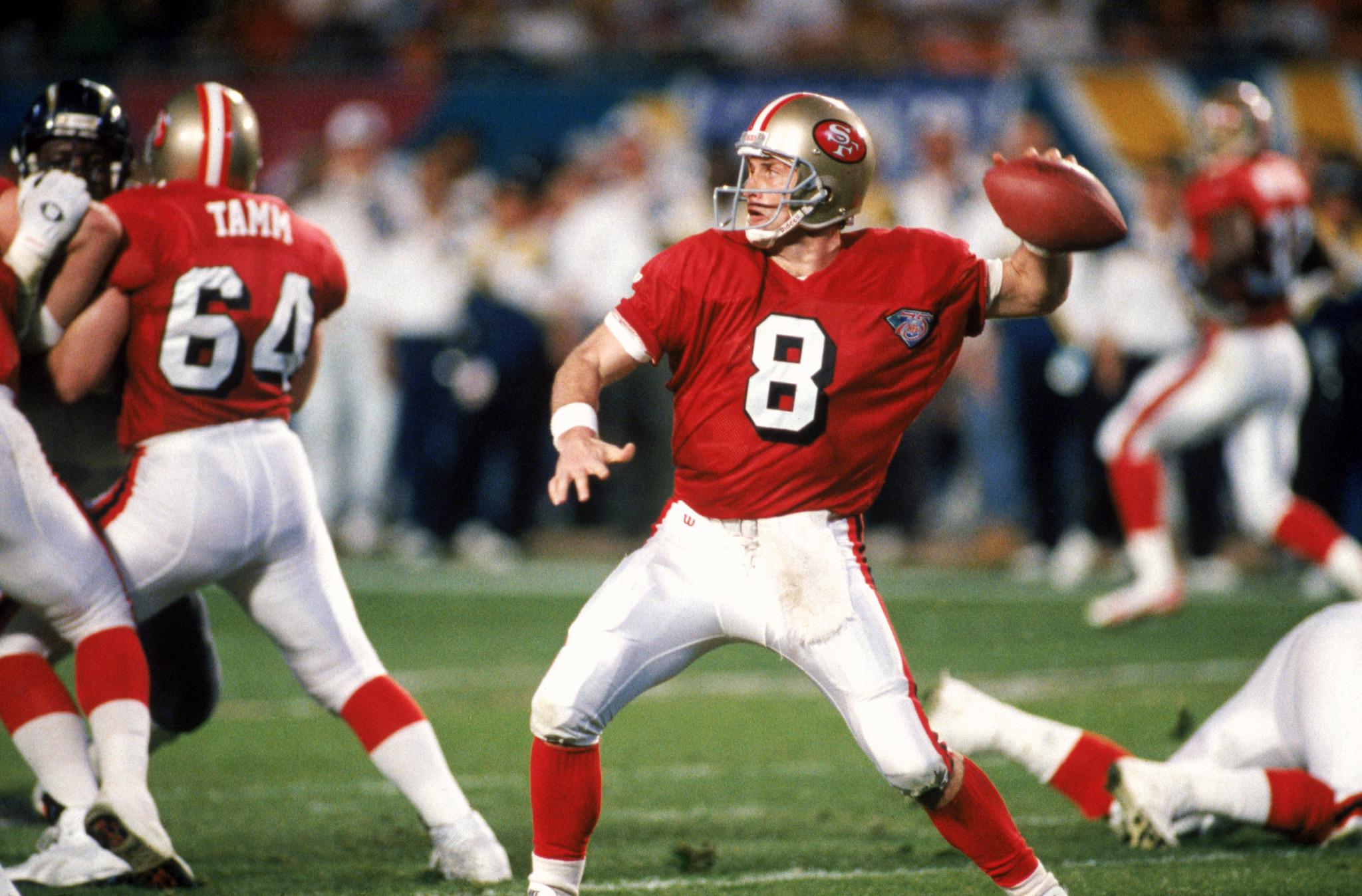
Young wasted no time in asserting his dominance, throwing a 44-yard touchdown to Jerry Rice on the opening drive. Throughout the first half, he meticulously dissected the Chargers’ defense, finding open receivers at will. Rice was the primary beneficiary, catching 10 passes for 149 yards and three touchdowns. Ricky Watters and William Floyd also hauled in touchdown passes, helping Young break the Super Bowl record.
In addition to his six touchdowns, Young used his legs to extend plays, rushing for 49 yards and keeping the Chargers’ defensive line off balance. He was named Super Bowl MVP, finally stepping out of Montana’s shadow and putting his stamp on the 49ers’ legacy.
This victory marked the 49ers’ fifth Super Bowl title, tying them with the Pittsburgh Steelers for the most in NFL history at the time. Young’s six-touchdown performance remains a record and exemplified his ability to dominate the game both as a passer and as a runner.
5. Doug Williams – Super Bowl XXII
Doug Williams’ performance in Super Bowl XXII was not only statistically remarkable but also historically significant. He became the first Black quarterback to start and win a Super Bowl, guiding the Washington Redskins to a 42-10 victory over the Denver Broncos. Williams threw for 340 yards and four touchdowns, all of which came in an explosive second quarter.

The Redskins trailed 10-0 in the first quarter and Williams was briefly sidelined with a knee injury. However, he returned with renewed focus, leading Washington to 35 unanswered points in the second quarter. Williams threw an 80-yard touchdown pass to Ricky Sanders to start the scoring spree, followed by a series of passes to Gary Clark, Clint Didier, and Sanders again. By halftime, the Redskins had a commanding 35-10 lead.
Williams was named Super Bowl MVP for his record-breaking performance. His poise and leadership under pressure were crucial in securing the victory. More than just a quarterback, Williams became a symbol of perseverance and breaking barriers, inspiring future generations of Black quarterbacks.
6. John Riggins – Super Bowl XVII
John Riggins personified toughness and resilience in Super Bowl XVII, leading the Washington Redskins to a 27-17 victory over the Miami Dolphins. Known for his bruising running style, “The Diesel” set a Super Bowl record with 38 carries, rushing for 166 yards and a touchdown.
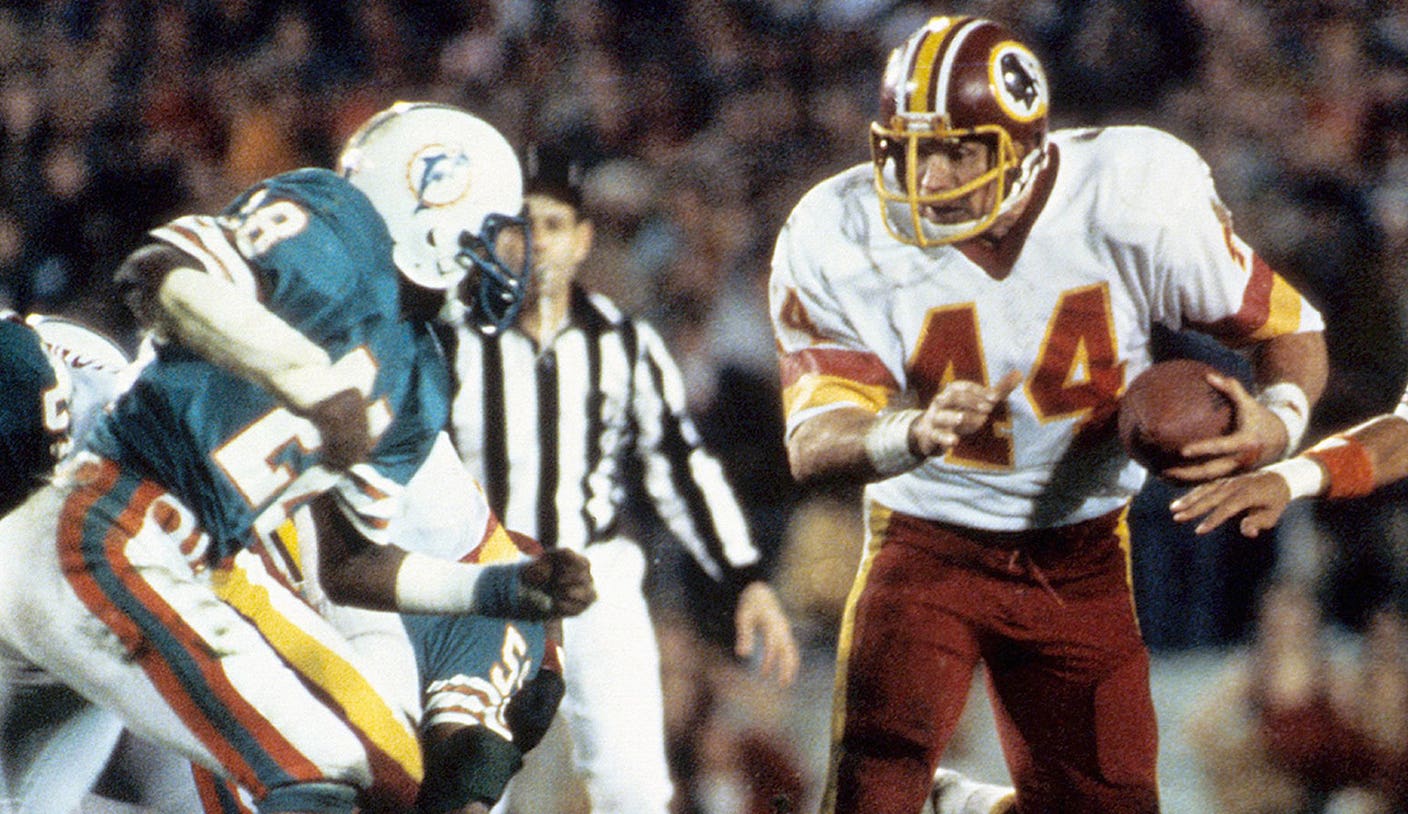
The Dolphins took an early lead, and their defense stacked the box to contain Riggins. However, the veteran running back consistently pushed forward for positive yardage, wearing down Miami’s defense. His defining moment came in the fourth quarter when, on fourth-and-1, he broke a tackle and rumbled 43 yards for a game-winning touchdown.
Riggins’ ability to control the tempo of the game allowed Washington to dominate time of possession and prevent Miami’s explosive offense from finding its rhythm. His power running consistently set up manageable third-down situations and kept the Dolphins’ defense on the field for extended periods.
Riggins was named Super Bowl MVP, highlighting his value as the heart and soul of Washington’s offense. His relentless approach exemplified the Redskins’ style of play under Joe Gibbs and cemented Riggins’ legacy as one of the toughest running backs to ever play the game.
7. Larry Fitzgerald – 2008 NFC Championship Game
Larry Fitzgerald’s performance in the 2008 NFC Championship Game was an offensive showcase, leading the Arizona Cardinals to their first Super Bowl appearance. In a thrilling battle against the Philadelphia Eagles, Fitzgerald dominated with nine receptions for 152 yards and three touchdowns.
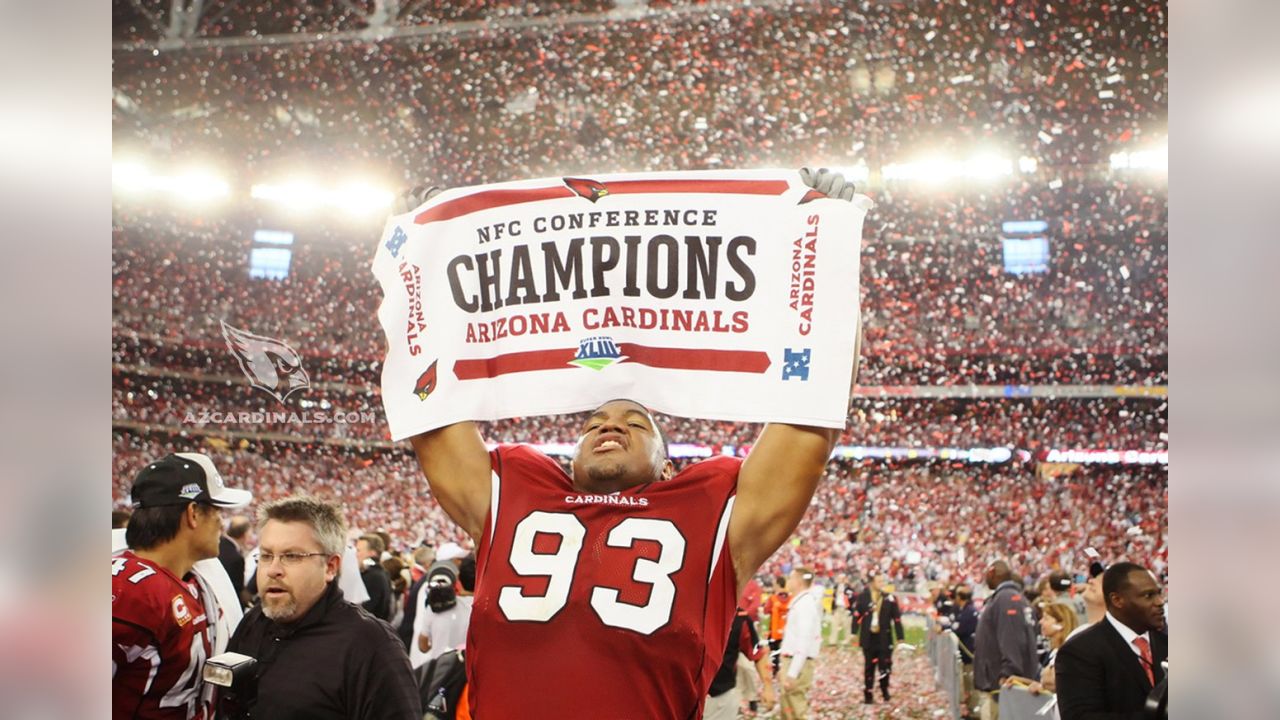
Fitzgerald set the tone early, scoring three first-half touchdowns. His first score came on a 9-yard pass from Kurt Warner. He then showcased his speed on a 62-yard bomb down the middle of the field. Fitzgerald capped off the half with a 1-yard touchdown, giving the Cardinals a commanding lead.
However, the Eagles mounted a comeback to take the lead in the second half. Fitzgerald’s resilience and ability to make clutch catches helped keep Arizona’s offense moving forward. Warner connected with him multiple times on the final, game-winning drive, which was capped off by Tim Hightower’s touchdown run.
Fitzgerald’s remarkable performance earned him the game MVP award and cemented his reputation as one of the best playoff receivers in NFL history. His impact went beyond the numbers, as his leadership and clutch plays guided the Cardinals to an unforgettable victory.
8. Terrell Davis – Super Bowl XXXII
Terrell Davis put together one of the most courageous performances in Super Bowl history in Super Bowl XXXII. Despite battling a severe migraine during the game, Davis led the Denver Broncos to their first Super Bowl win, rushing for 157 yards and three touchdowns against the Green Bay Packers.
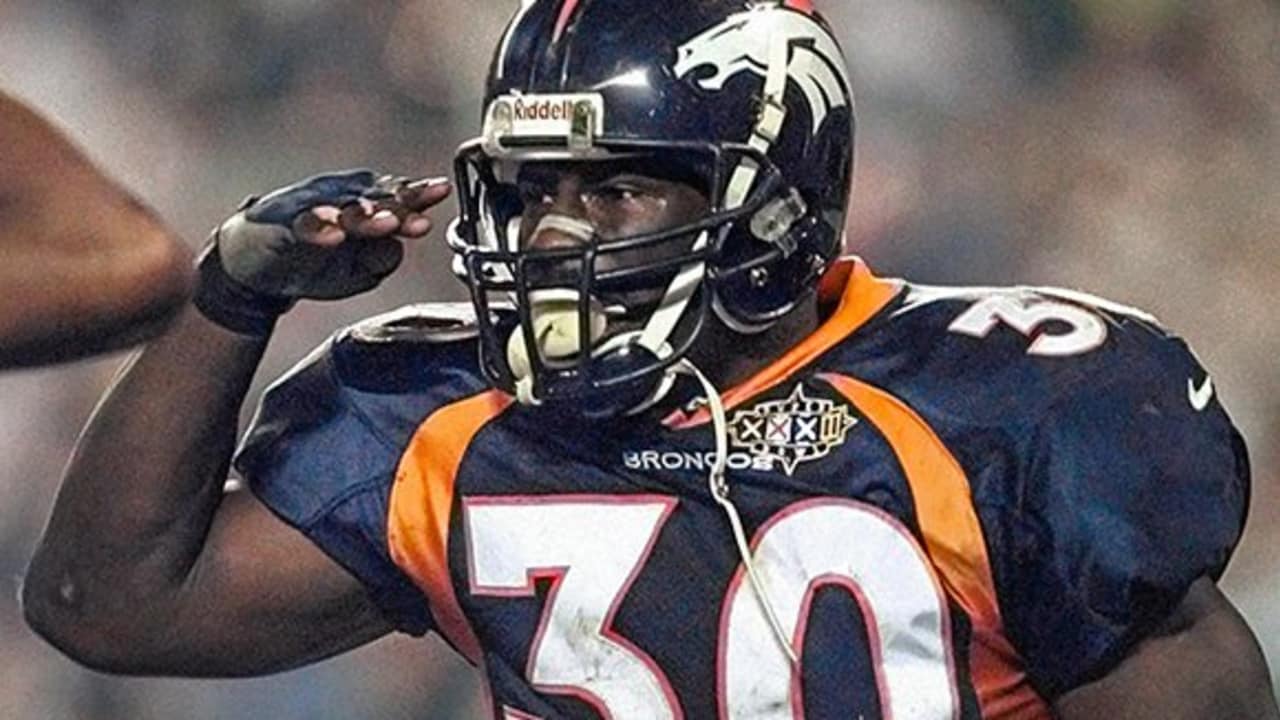
Davis opened the scoring with a 1-yard touchdown plunge, giving Denver an early lead. However, a migraine attack forced him to the sideline for most of the second quarter. Despite losing vision in one eye, he returned to the game and became unstoppable, scoring another short-yardage touchdown just before halftime.
In the second half, Davis wore down the Packers’ defense with his relentless running, consistently breaking tackles and gaining extra yards. He capped off his performance with a one-yard touchdown run in the fourth quarter to secure a 31-24 victory.
Davis became the first player to rush for three touchdowns in a Super Bowl and was named MVP for his performance. His ability to play through adversity embodied the Broncos’ resilient spirit and remains one of the defining moments in NFL playoff history.
9. Frank Reich – 1992 AFC Wild Card Game
Frank Reich’s performance in the 1992 AFC Wild Card Game is forever etched in NFL lore as the greatest comeback in playoff history. As the backup quarterback for the Buffalo Bills, Reich was thrust into the starting role after Jim Kelly was injured. The Bills quickly fell into a 35-3 hole against the Houston Oilers early in the third quarter.
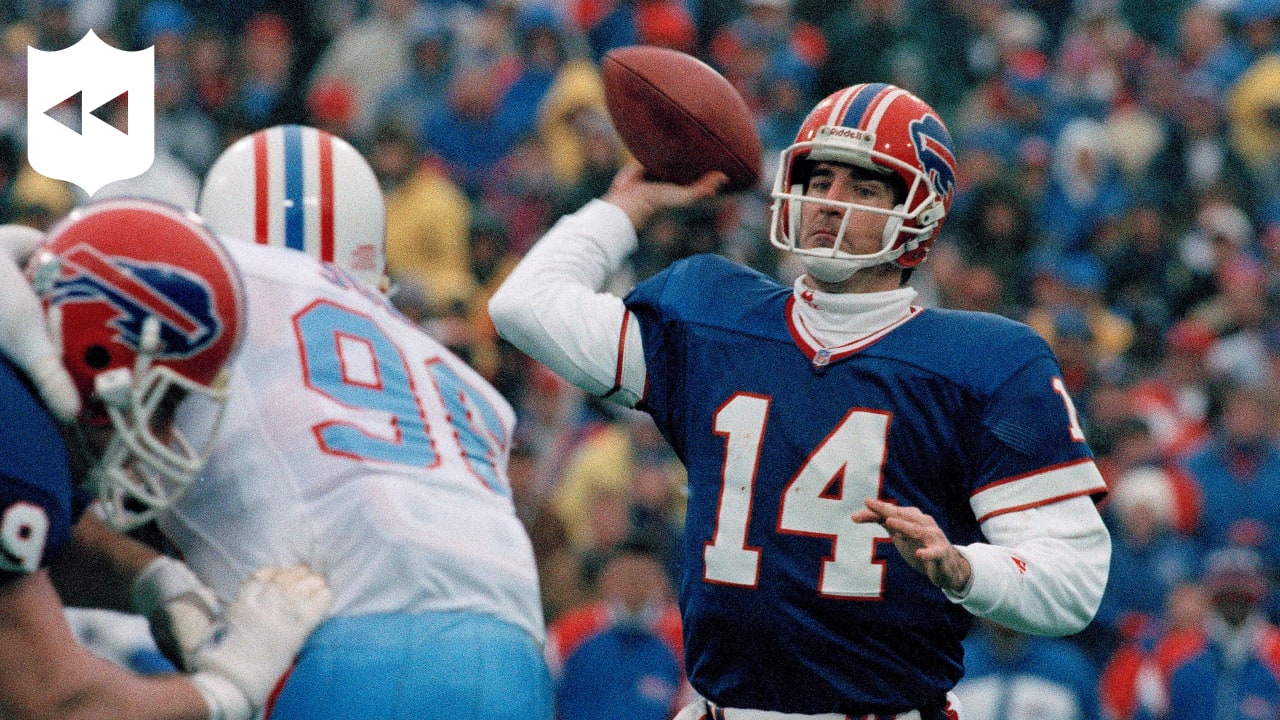
Despite the seemingly insurmountable deficit, Reich remained unfazed. He began picking apart the Oilers’ secondary with surgical precision. He threw a touchdown pass to Don Beebe to spark the rally, then followed up with three straight scoring connections to Andre Reed. Buffalo closed the gap to 35-31 by the end of the third quarter.
In the fourth quarter, Reich continued his remarkable run, finding Reed for another touchdown to give Buffalo a 38-35 lead. The Oilers managed to tie the game late, but Reich maintained his composure, leading a drive that resulted in a game-winning field goal in overtime.
Reich finished the game with 289 passing yards and four touchdowns, showcasing his poise and leadership in one of the most dramatic comebacks in sports history.
10. Kurt Warner – Super Bowl XXXIV
Kurt Warner delivered a performance for the ages in Super Bowl XXXIV, leading the St. Louis Rams to a dramatic 23-16 victory over the Tennessee Titans. Warner threw for a then-Super Bowl record 414 passing yards and two touchdowns, delivering clutch plays when the Rams needed them most.
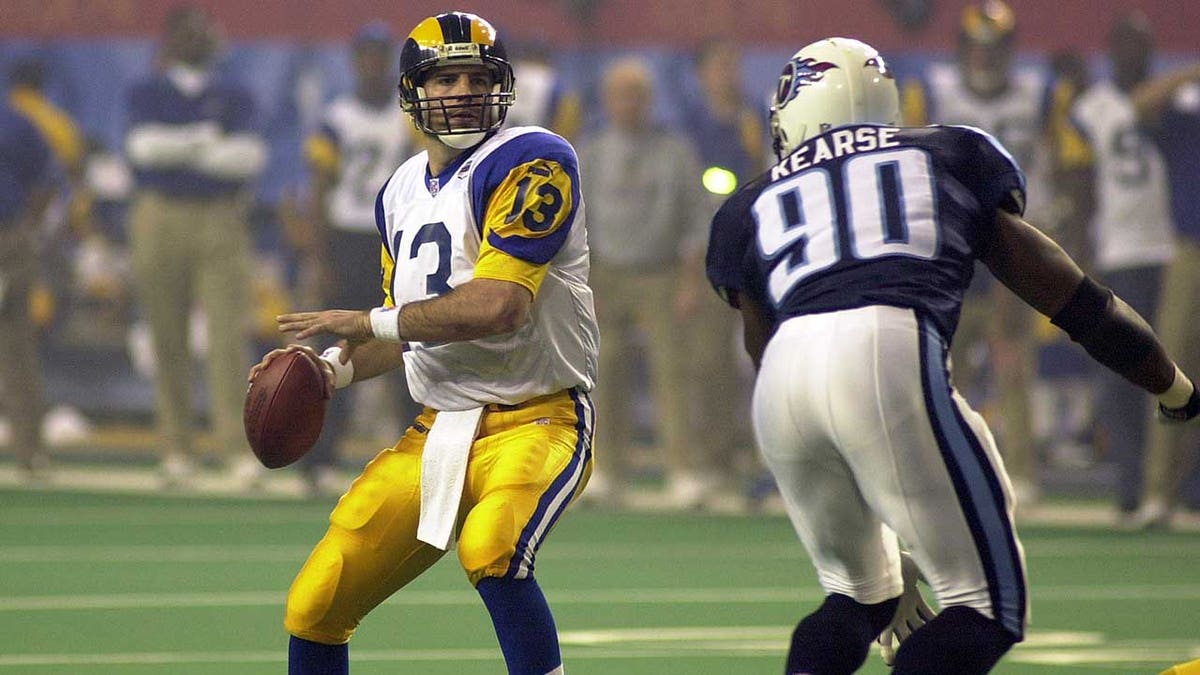
Warner’s calm, poised demeanor set the tone for the Rams’ high-powered offense. He connected early and often with Isaac Bruce and Torry Holt, stretching the Titans’ defense. However, despite dominating the first half statistically, the Rams were only able to score nine points.
In the third quarter, Warner found Holt for a touchdown, giving the Rams a 16-0 lead. However, Tennessee clawed its way back, tying the game at 16-16 late in the fourth quarter. With less than two minutes remaining, Warner launched a 73-yard touchdown pass to Bruce, putting the Rams ahead. On the Titans’ final drive, Warner watched from the sideline as the defense held strong, stopping Kevin Dyson just one yard short of the goal line as time expired.
Warner’s 414-yard performance earned him the Super Bowl MVP award, capping off a remarkable season for the undrafted quarterback. His rise from obscurity to league MVP was one of the greatest underdog stories in NFL history.
In the pressure cooker of the NFL playoffs, these 10 performances stand out as the gold standard of postseason heroics. Each player demonstrated unparalleled poise, skill, and determination to either carry their teams to victory or lead incredible comebacks when defeat seemed imminent. Jerry Rice’s precision and reliability in Super Bowl XXIII laid the foundation for the San Francisco 49ers’ dynasty, while Tom Brady’s legendary comeback in Super Bowl LI solidified his status as one of the greatest quarterbacks to ever play.
Joe Montana and Steve Young, playing for the 49ers in separate eras, both showcased pinpoint accuracy and coolness under pressure. Doug Williams broke barriers with his historic performance, while John Riggins and Terrell Davis demonstrated the power of relentless rushing. Frank Reich proved that no deficit is insurmountable, and Larry Fitzgerald showed that a wide receiver can carry a team on his back when it matters most.
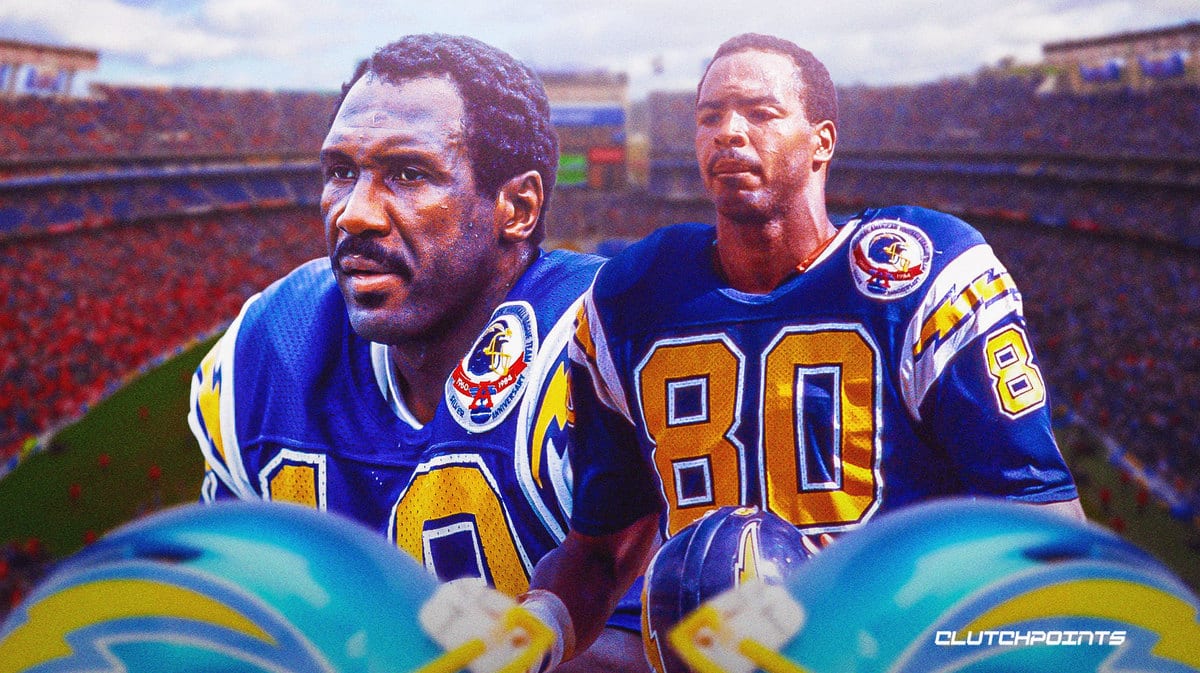
These extraordinary feats are not only remarkable due to the records broken or titles won but also because they shaped how future generations view the sport. They set benchmarks for excellence and proved that the improbable can be achieved with unwavering belief and commitment. Every generation of NFL fans will likely debate the greatest playoff performances, but these 10 efforts are unquestionably among the best, representing an inspiring blend of talent, courage, and competitive spirit that has come to define the NFL playoffs.









